A quick preface for this post. All of the reasons it's' hard to get to sleep, and all of the ways parents can help were suggestions from my neice's and nephew (a mix of neurotypical and neurodivergent). They were over one day while I was getting some work done and asked to help, so I posed the question of what do you wish parents knew about helping you get to sleep. They had brilliant reasons why, and brilliant suggestions for help. So know that when you are reading this post, you are getting the true perspective of children.
Now, onto the post.
Getting to bed is a hard challenge for a lot of people. It signifies the end of the day, end of play, time alone, and a huge transition to the new day. Many parents and loved ones struggle with supporting their child to get to bed, so know that you're not alone! I now
As usual, this is a big topic and has the potential to be long, so I've kept it short and we'll call this part one of some.
So, why does your child have difficulty getting to bed?
Perhaps they're not ready to stop what they're doing.
People, neurodivergent people especially, struggle often with transitioning from one thing to the next. It can be very hard for little and neurodivergent brains to switch from doing something they love, to something they don't really love.
So when we ask them to "turn off the video games, it's bedtime" or "put away the blocks, you need to put your pjs on", their brain struggle to compute and switch to getting ready for bed mode.
Does that mean we should just let them keep playing for as long as they like? Definitely not. But understanding what's happening in their brain can make it a lot easier to get through the day, and get through tricky moments.
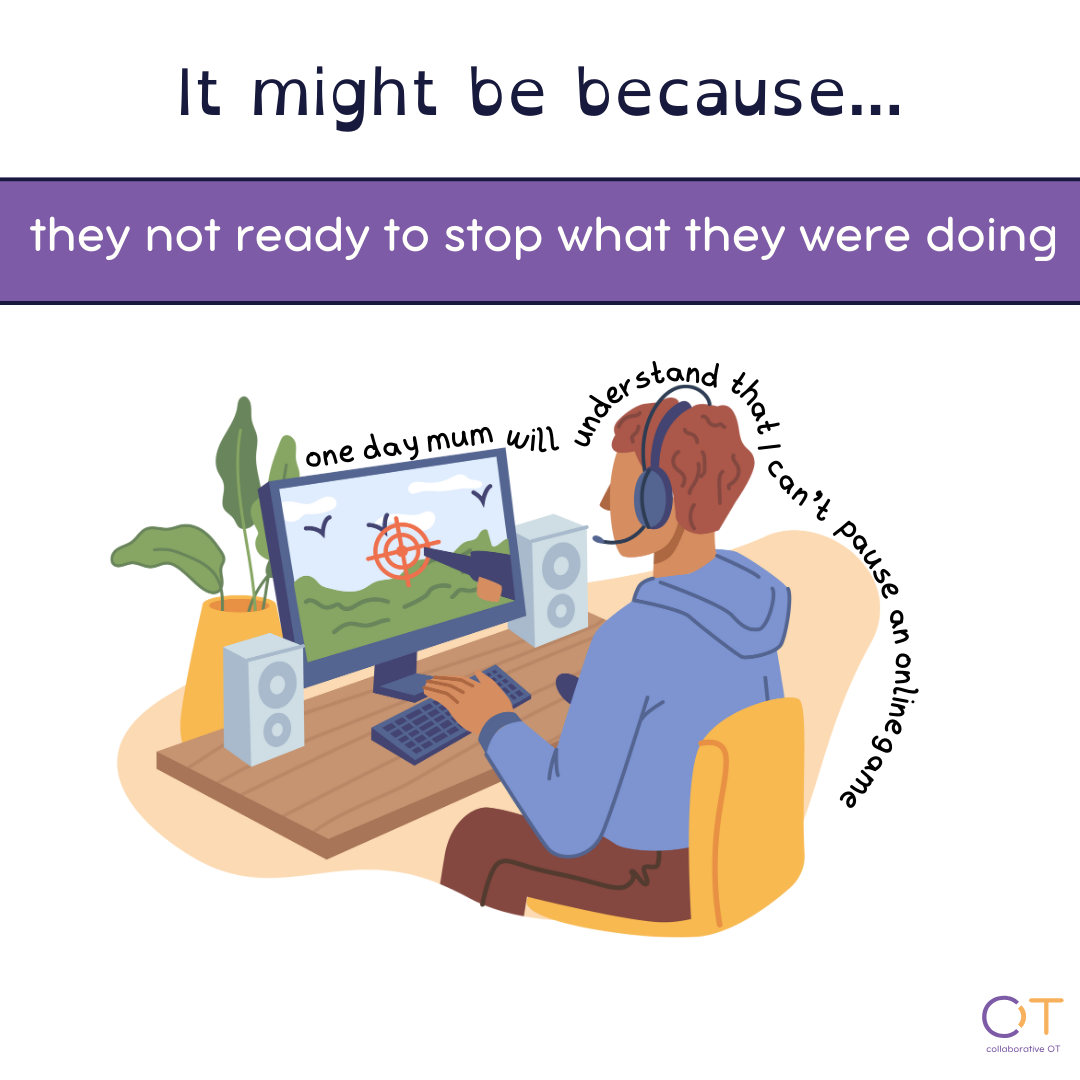 It might also be because they're body is going too fast!
It might also be because they're body is going too fast!
I've talked in other social media posts about Body and Brain Batteries and how sometimes our batteries are full, overcharged or too low and need to be recharged (or depleted) with things like moving, rest, water, relaxation etc.
In coming weeks, I'll also cover Regulation and what it means to match our energy to a task.
But simply put, your loved one might have trouble with getting to bed because they're body is too fast, they're not tired or they don't notice that they're tired.
Think about how when you're just feeling really energetic and bouncy and lively. Do you want to go to bed? Or do you want to stay and up and do something with your energy?
Same goes for children. They might not be ready to go to bed, because their body isn't telling them they're tired yet.
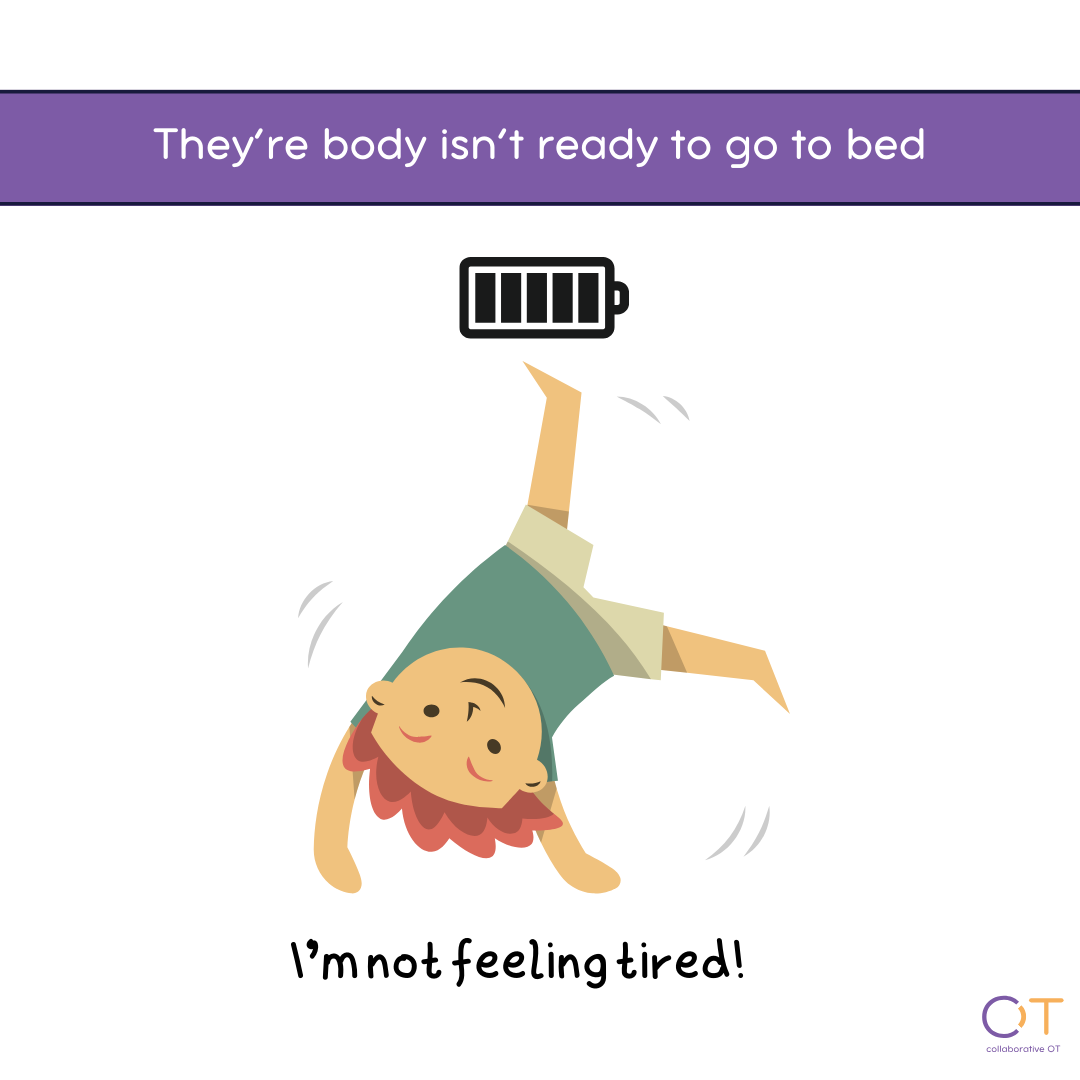
Maybe they don't want to go to bed because the bedroom doesn't feel safe
Children have infections and incredible imaginations. Often, that is a blessing, but sometimes it can work against them.
Shadows can suddenly become monsters, wind can become scraping fingernails, and the breeze in the curtains can become a creepy ghost.
While as adults we can usually rationalise those fears, children don't have those skills yet. The fear they fear is very real, sending their nervous system into overdrive.
So not only is it hard to sleep when we're scared because of the scary thoughts, their bodies (stuck in fight or flight) are very much keeping them awake to deal with the (perceived) threat of monsters and ghosts.
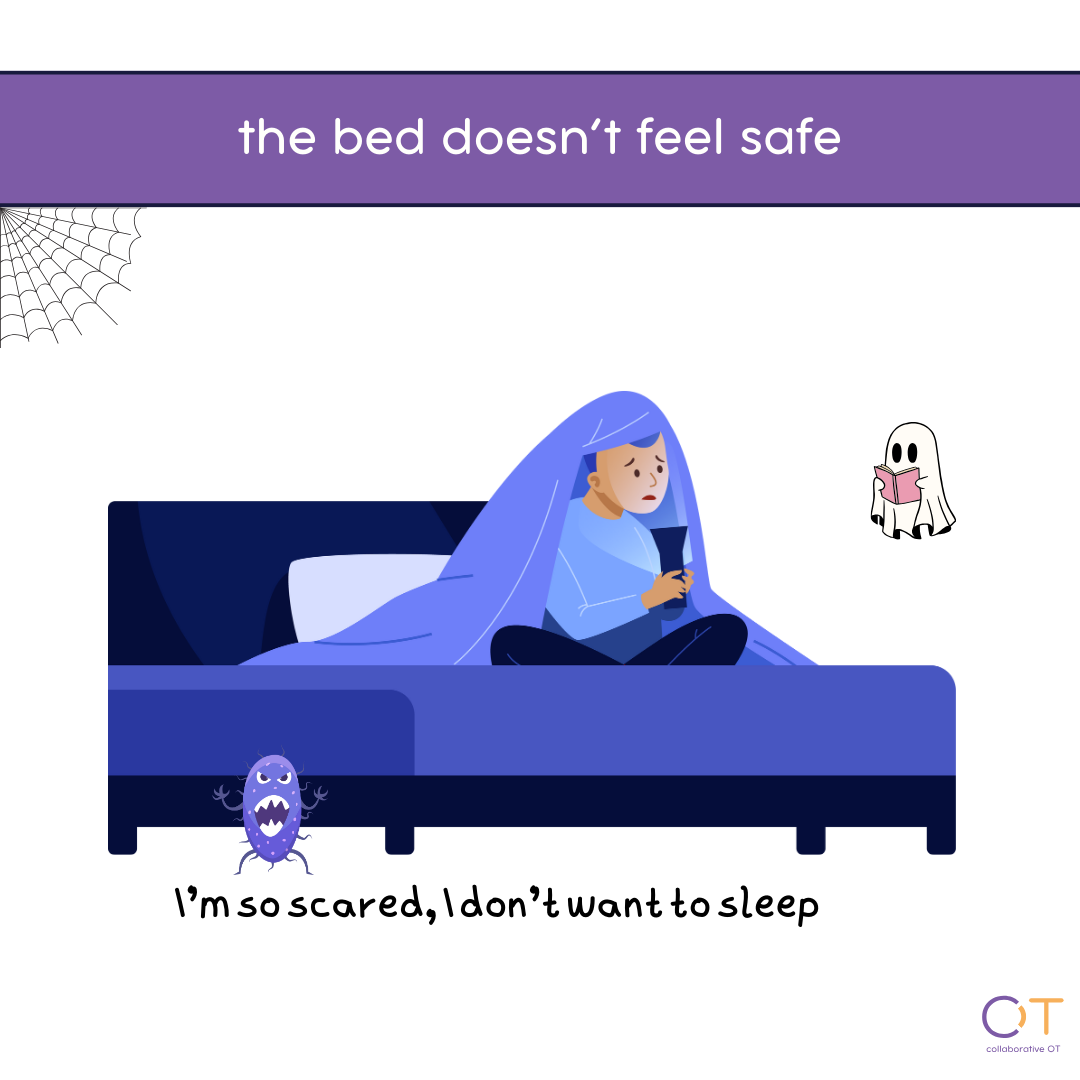
On a similar theme as the above, sometimes kids have a hard time going to sleep because they're worried.
Worry and anxiety often come hand in hand with neurodivergent children. Overactive brains and nervous systems can lead to racing thoughts that don't slow down, and often spiral into rumination, worry, and anxiety.
And it's very hard to sleep with those anxious thoughts.
Not only is it hard to sleep, but lying in bed with nothing else to do means the thoughts often become overwhelming, with nothing else to distract from them.
And so, many children (and adults) avoid going to bed because they know that is when the anxious thoughts become their loudest.
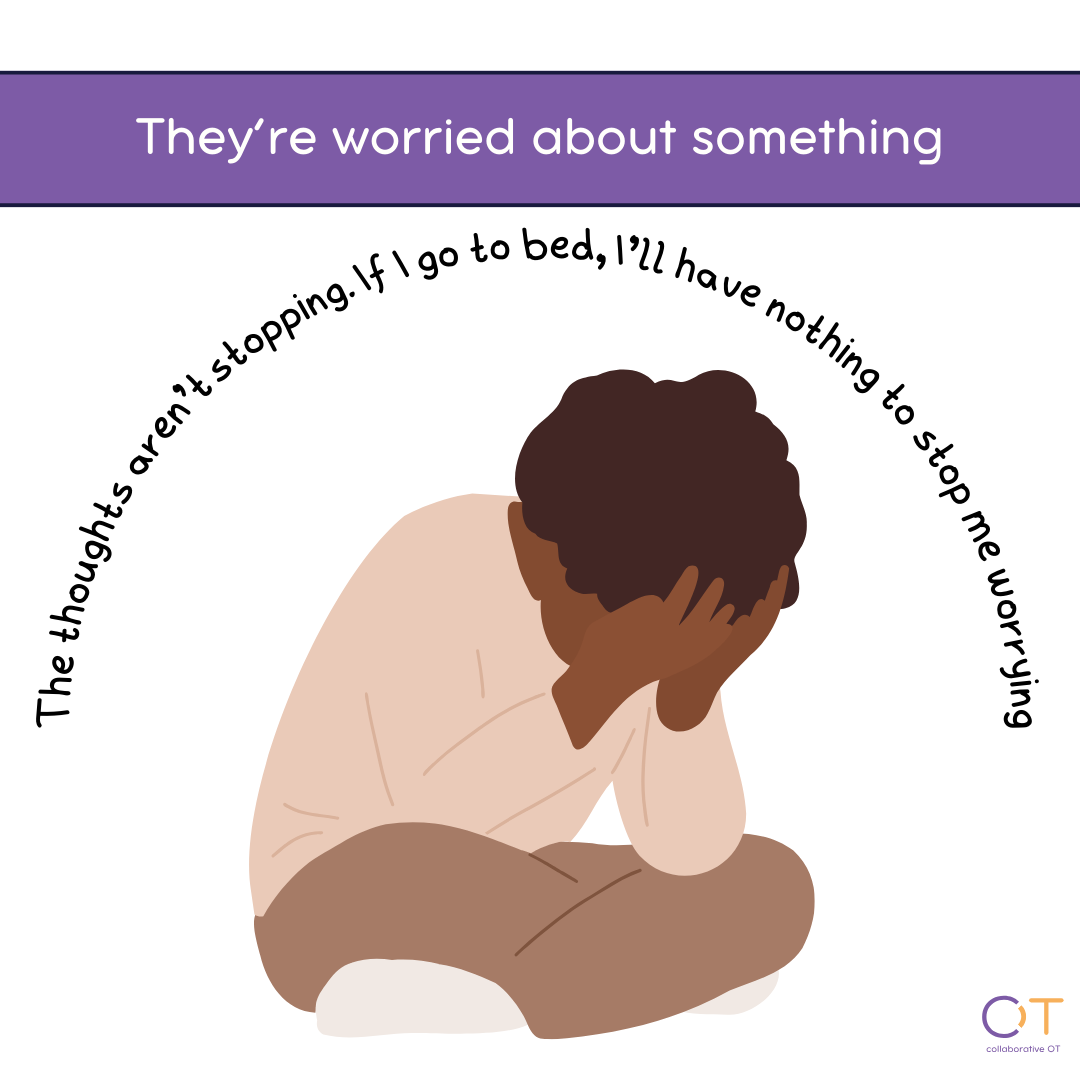
Children can often have trouble going to bed too because they just not ready to be alone?
As a general rule, people like spending time with things that bring them comfort. And for many people, that's often our loved ones. Husbands, partners, mothers, fathers, siblings, best friends. Spending time with them is joyous and cup filling.
For families that don't co-sleep, going to bed has the implication of being alone.
So, maybe your child is delaying going to bed because they're just not ready to be alone and want to spend more time with you?
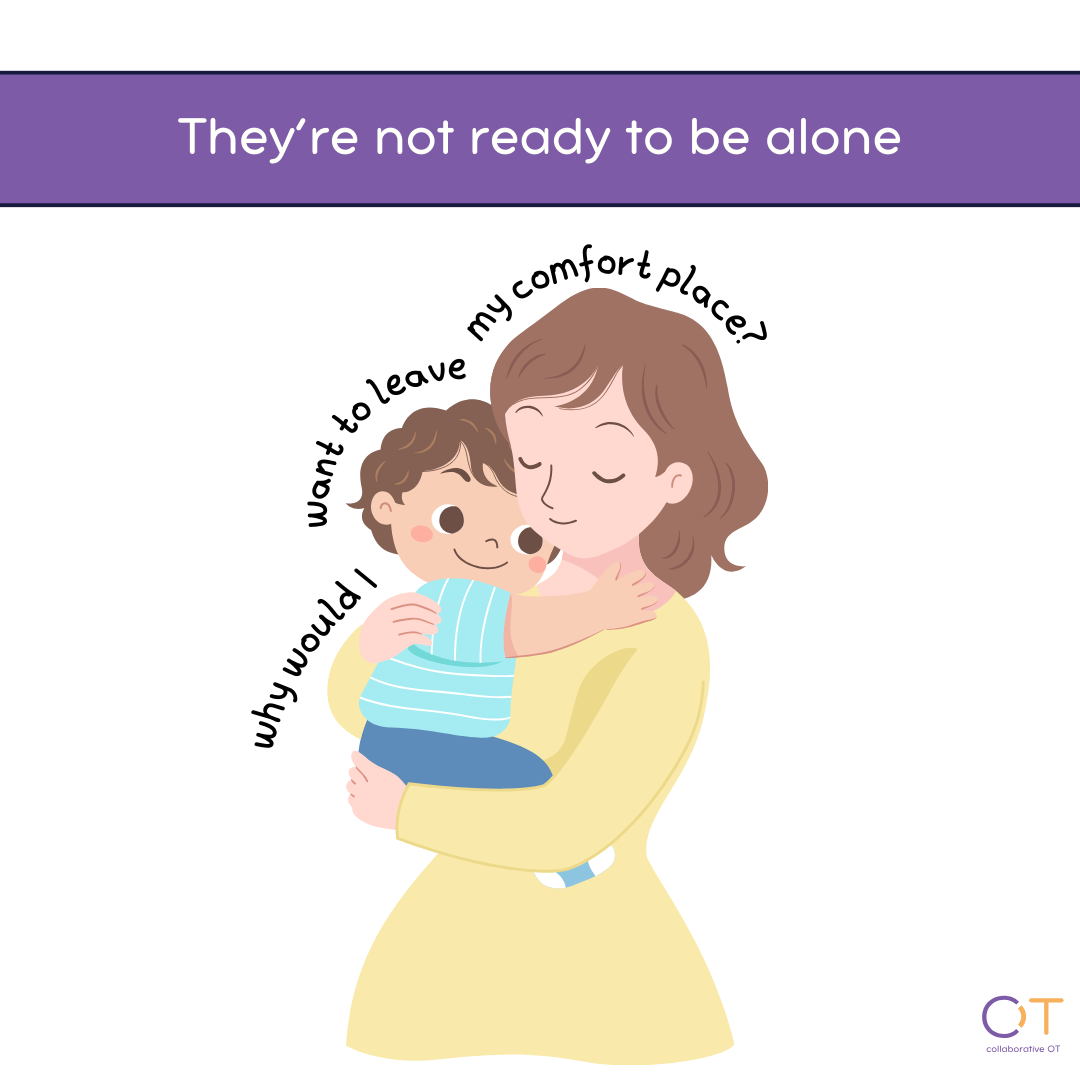
So what can we do to help our loved ones when they're not ready to go to bed.
Well, we can....
Help regulate and get their body ready
Being regulated means matching our energy to the task.
For some people, at bed time their body is super hyped and bouncy. And it's pretty hard to go to bed and chill out if you feel like bouncing off the walls.
So, we can help by helping them regulate. Some of my favourite ways to help bodies slow down is to:
- Do some Wall Pushes
- Have some big bear cuddles
- Crash onto the mattress
- Do some deep breathing
- Animal Walks
- Drink water through a straw
- Colouring in
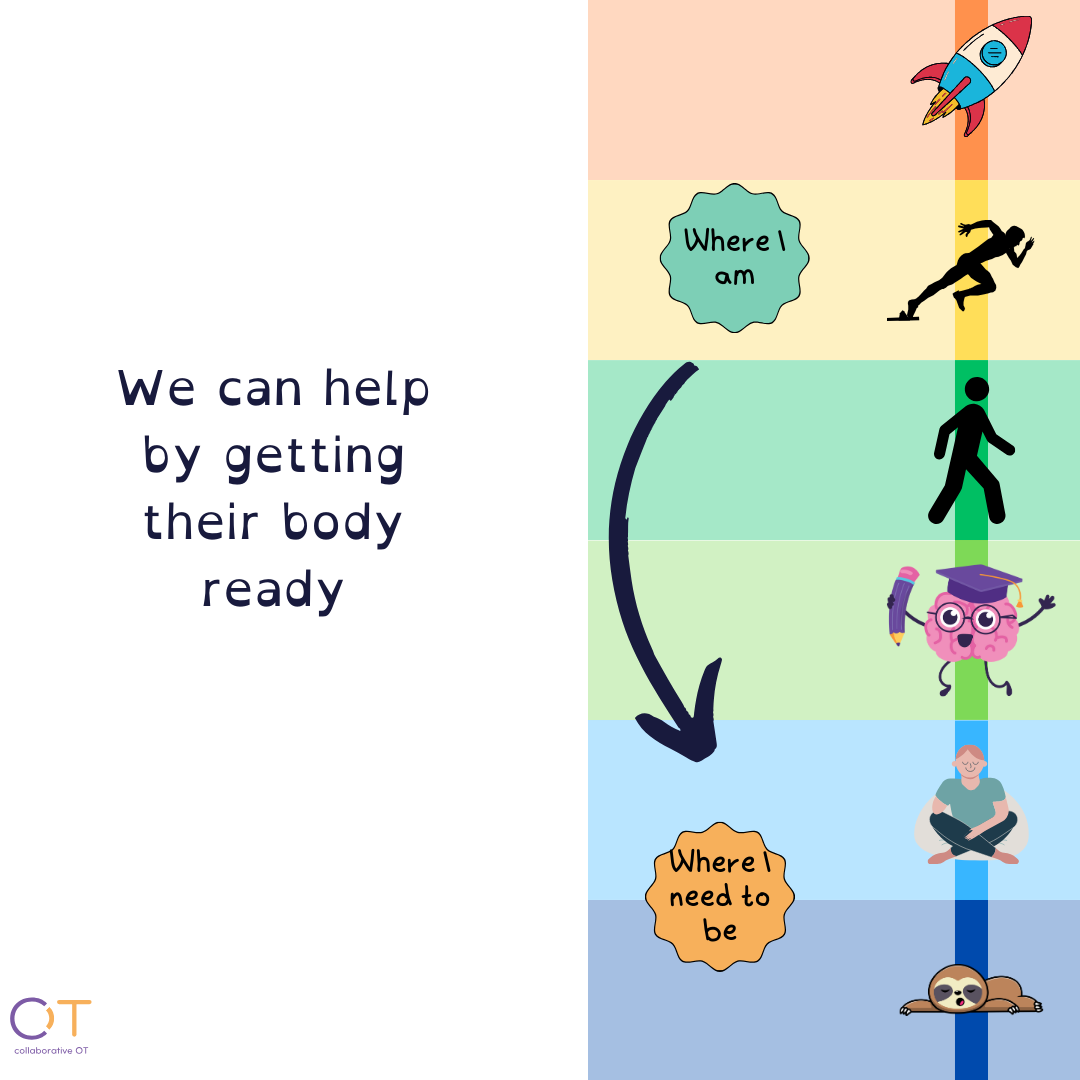
You can also help by having a plan for needing help
Knowing what to do when things go wrong is a great help for anyone, child or adult, neurotypical or neurodivergent.
Knowing how to get help, or how to help yourself, can be a huge game changer for many children. This can look like a simple conversation before bed, or a list in the bedroom to remind them what to do if they are having difficulty falling asleep.
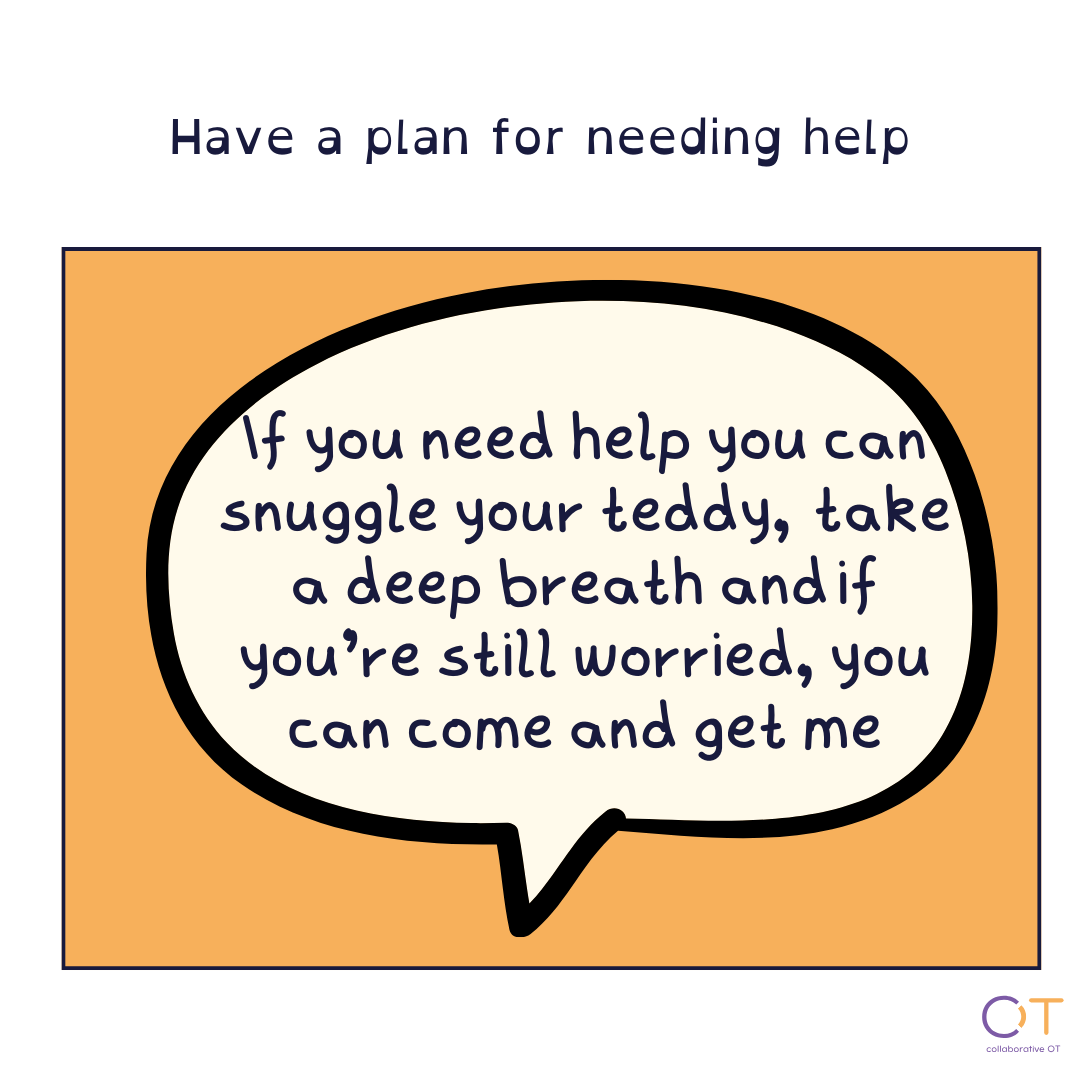
You an also help by making the space more comfortable
Comfortable can mean many things to a lot of different people, and can mean physical or mental.
A night light to reduce scary shadows, a teddy to snuggle, adjusting the temperature, or spending time with your little one in bed so you help make the space more comfortable, are great ways to help your child feel more relaxed in the space.
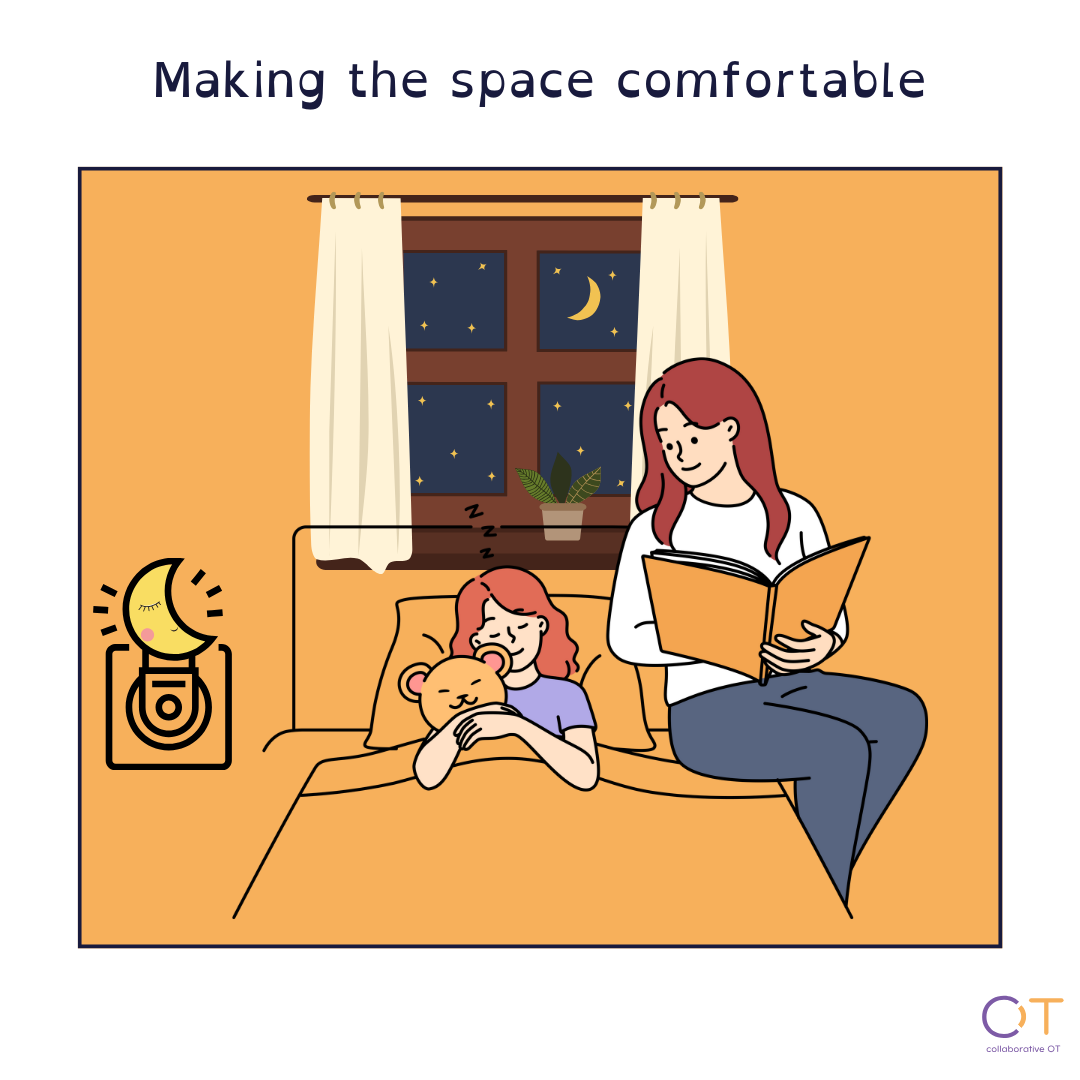
You can also help by developing a routine
If you know me by now, you know I love a routine.
Routines don't have to be formalised into a visual schedule (although they help for a lot of people), but having a regular process you go through to get ready for bed can be helpful for a lot of people.
It helps their brains, and bodies, know what to expect for the evening and can even include elements like slowing your child's body down, moving them away from play, and spending time together
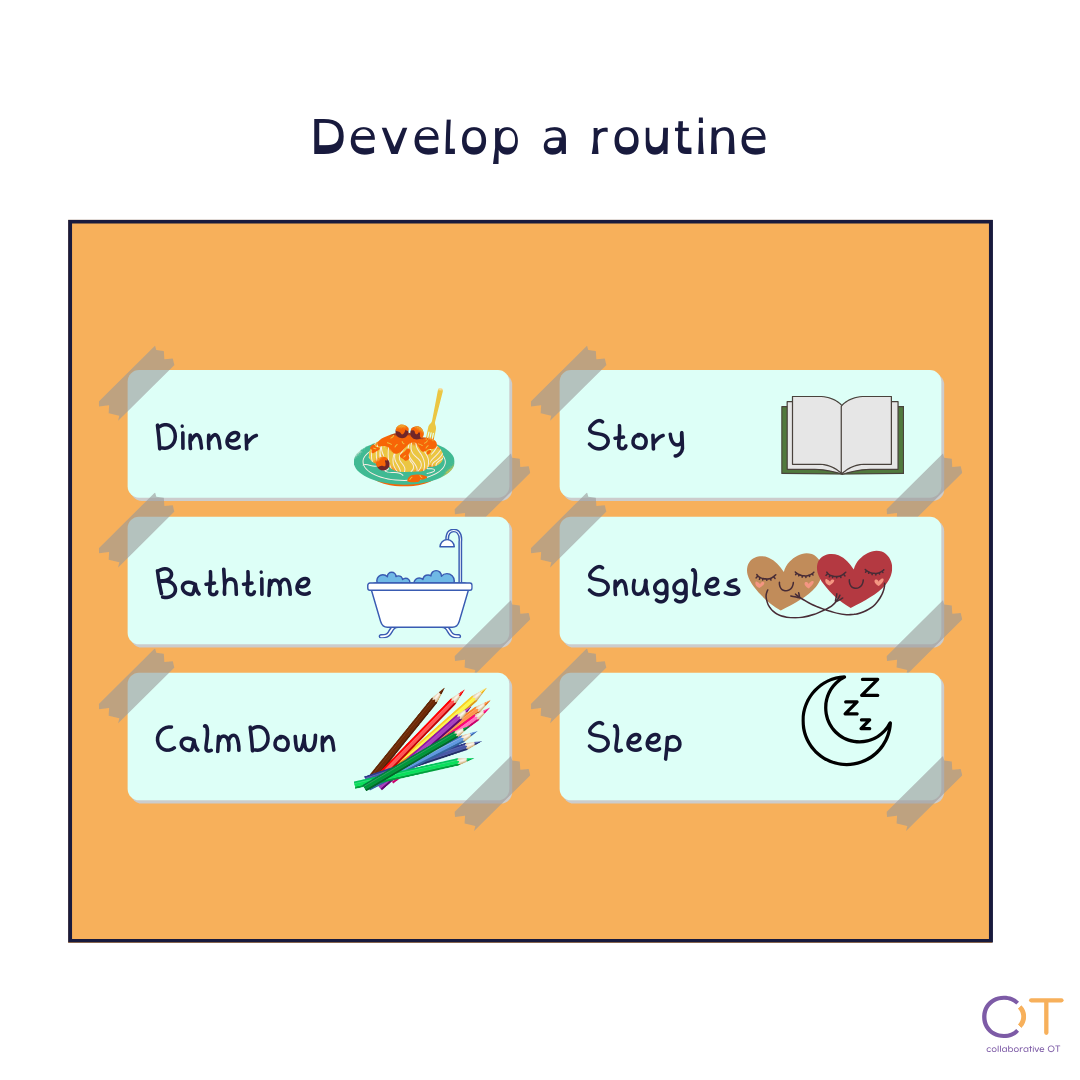
In summary:
Kids might have trouble getting to bed because:
- They're struggling finishing up their activity
- Their body is going too fast (or they don't feel tired)
- They're scared
- They have lots of worried thoughts that get worse at bed time
- They want to spend more time with you
You can help them by:
- Developing a routine
- making the sleep space comfortable
- helping their bodies get ready for sleep
- help them have a plan for if they can't get to sleep